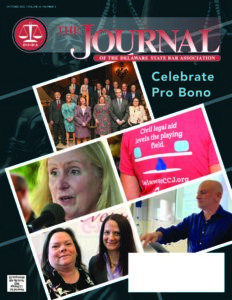I work as a bilingual paralegal in CLASI’s immigration project. Our clients include both documented and undocumented immigrants who have been victims of domestic violence, human trafficking, child abuse or other serious crimes that occurred here in the U.S. In most cases, they have already endured terrible suffering, armed violence and worse before coming here; they are the very definition of “vulnerable.” But COVID-19 has turned everything upside down. They have gone from being vulnerable to being essential.
Legal and undocumented workers fill huge numbers of low-paid jobs that have suddenly been deemed “essential” in this pandemic: food production workers, cleaners, janitors, home health caregivers, farm workers, cooks, kitchen staff and delivery drivers at restaurants, grocery stockers, warehouse workers, child care staff, day laborers, and dozens more. This creates a dilemma for immigrant workers, having to decide between putting themselves at higher risk for contracting COVID-19 (and not having medical insurance or paid leave if they do get sick), or losing their job with no way to know when it will be possible to find work again and feed their families. Although Congress passed bills with billions of dollars of stimulus and assistance funds, these workers’ immigration status excludes them from receiving any of those benefits. Despite many of them paying into the IRS, they have no unemployment benefits, paid leave of any kind, no medical insurance and certainly no stimulus checks.
My other big concern is about domestic violence. The very same executive order requiring people to stay-at-home that is meant to protect us can be a nightmare for victims of domestic violence. Instead they are trapped at home with their abusers, all day, every day, with little if any chance to safely reach out to a friend, the police or the domestic violence hotline, for fear of being seen or overheard. We are all doing our best to let the public know that DV service providers are still working. CLASI, the DV hotlines and shelters, the police and victim services, are still here for them.
For me, the challenges of working remotely are about the limitations of the phone. For routine, non-sensitive information, a phone call is fine. However, all of our clients have been victimized in some way, and part of the process when we get involved requires documenting the crime, or discussing their injuries, treatments, counseling, etc. These issues are deeply private and personal, and often quite traumatic, and best done in person. I have a much better ability to create and foster a sense of security in a small office setting, where I can see their facial expressions and read their body language, to enable me to conduct trauma-informed interviews. Having such a conversation over the phone is much more difficult – for me and for the client. On the other hand, all this extra phone time with clients is allowing me to build trust and hopefully provide them some reassurance that even if we cannot meet in person for now, I am still here for them and we are working on their case – they haven’t been forgotten. The other challenge is to translate not just into Spanish, but also turning the “legalese” of immigration documents into everyday terms, so that clients have a clear understanding and can be active participants in the process of attaining their immigration status.
My biggest concern about returning to “normal” (whatever that is!) is about funding for the work we do. Nobody knows how long it will take for any kind of significant economic recovery, but economists are talking in terms of months and years, not days and weeks. Consequently, the non-profit agencies could become very vulnerable to reduced funding, precisely at a time when the need will be greatest! Here’s hoping that I’m wrong about that, but it is a cause of concern for me.
As for how things are being handled here in Delaware, my primary concerns are the lack of access to assistance for immigrants, and the lack of Spanish versions of crucial information like access to testing, knowing the test is free, hygiene tips, face mask use, governor’s orders, etc. and being able to know the situation in their community. Surely if their work has been deemed “essential,” they should be treated as such. It must be pretty scary to live through this without much hope of outside assistance or easy access to reliable information in Spanish. It has motivated CLASI to look into new and innovative ways to reach out with technology, whether through social media, like Facebook Live, YouTube videos, or radio programs, to share information in audio and video formats with the Latinx community and do our best to ensure that we are continuing to improve clients’ access to justice, and to a better life.
By the way, I got out my dictionary to check something:
es·sen·tial
/əˈsen(t)SHəl/
adjective
1. absolutely necessary; extremely important; crucial; key; vital; indispensable
I look forward to the day when all immigrants are seen as essential – all the time.
Joann Kingsley
CLASI Immigration Paralegal

